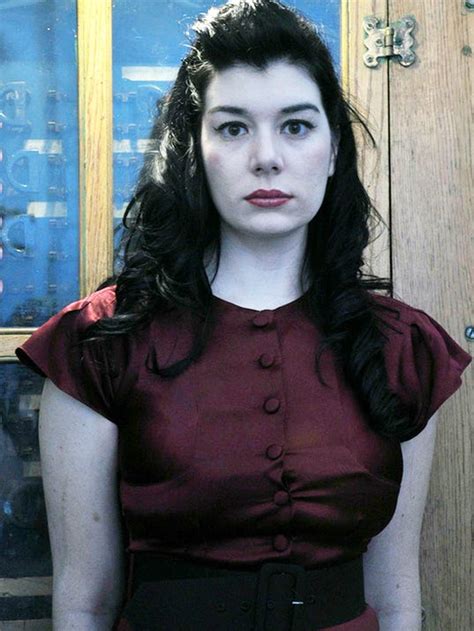A Quote by Michel Faber
I think throughout the 20th century, for some reason, serious writers increasingly had contempt for the average reader. You can really see this in the letters of such people as Joyce and Virginia Woolf.
Related Quotes
Think of Virginia Woolf, 'A Room of One's Own' - that's what women have always needed under patriarchy and can't be creative without. They took away my classroom and my status to teach, and now they have taken away my office, and all of it is giving the message that Virginia Woolf and I are losing what I call 'womenspace.'
When I saw what painting had done in the last thirty years, what literature had done - people like Joyce and Virginia Woolf, Faulkner and Hemingway - in France we have Nathalie Sarraute - and paintings became so strongly contemporary while cinema was just following the path of theater. I have to do something which relates with my time, and in my time, we make things differently.
I think the way design was practiced for most of the 20th century was very declarative. A designer came up with a solution for a project and put it in place and shipped the solution and it landed in a reader or a customer's hands as a brochure. They would see it as a poster, or as a piece of signage. And that was sort of it. That was the end of it. I think Internet technology has really upended that whole equation because in some ways a designer's work is never really done online.
Insofar as I think about postmodernism at all, and it doesn't exactly keep me awake at nights, I think of it as something that happens to one, not a style one affects. We're postmoderns because we're not modernists. The modernist writers?Pound, Eliot, Joyce, Stevens, Yeats, Woolf, Williams?spoke with a kind of vatic authority: they were really the last of the Romantics, for whom authorship itself was like being a solitary prophet in the wasteland.
In the 20th century, we had a century where at the beginning of the century, most of the world was agricultural and industry was very primitive. At the end of that century, we had men in orbit, we had been to the moon, we had people with cell phones and colour televisions and the Internet and amazing medical technology of all kinds.
I was really interested in 20th century communalism and alternative communities, the boom of communes in the 60s and 70s. That led me back to the 19th century. I was shocked to find what I would describe as far more utopian ideas in the 19th century than in the 20th century. Not only were the ideas so extreme, but surprising people were adopting them.
I learned to write from reading. I had no writing classes. It's part of my thinking as the writer-author, reading, but then I also want to bring this into my characters, who also read and think. There's that great quote from Virginia Woolf - it's very simple: "...books continue each other." I think when you're a writer, you're also, hopefully, a reader, and you're bringing those earlier works into your work.





































